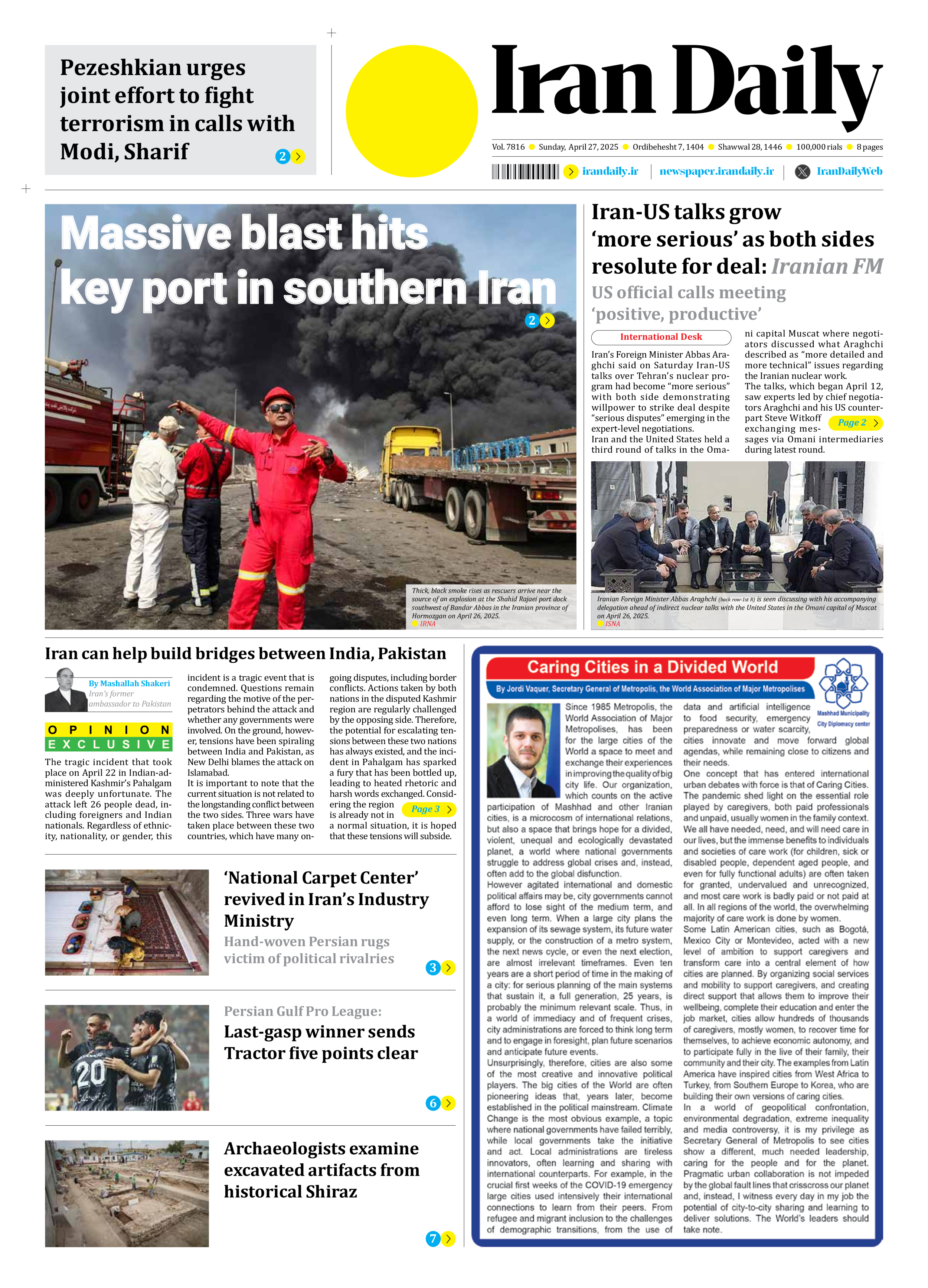
Caring Cities in a divided World
Since 1985 Metropolis, the World Association of Major Metropolises, has been for the large cities of the World a space to meet and exchange their experiences in improving the quality of big city life. Our organization, which counts on the active participation of Mashhad and other Iranian cities, is a microcosm of international relations, but also a space that brings hope for a divided, violent, unequal and ecologically devastated planet, a world where national governments struggle to address global crises and, instead, often add to the global disfunction.
However agitated international and domestic political affairs may be, city governments cannot afford to lose sight of the medium term, and even long term. When a large city plans the expansion of its sewage system, its future water supply, or the construction of a metro system, the next news cycle, or even the next election, are almost irrelevant timeframes. Even ten years are a short period of time in the making of a city: for serious planning of the main systems that sustain it, a full generation, 25 years, is probably the minimum relevant scale. Thus, in a world of immediacy and of frequent crises, city administrations are forced to think long term and to engage in foresight, plan future scenarios and anticipate future events.
Unsurprisingly, therefore, cities are also some of the most creative and innovative political players. The big cities of the World are often pioneering ideas that, years later, become established in the political mainstream. Climate Change is the most obvious example, a topic where national governments have failed terribly, while local governments take the initiative and act. Local administrations are tireless innovators, often learning and sharing with international counterparts. For example, in the crucial first weeks of the COVID-19 emergency large cities used intensively their international connections to learn from their peers. From refugee and migrant inclusion to the challenges of demographic transitions, from the use of data and artificial intelligence to food security, emergency preparedness or water scarcity, cities innovate and move forward global agendas, while remaining close to citizens and their needs.
One concept that has entered international urban debates with force is that of Caring Cities. The pandemic shed light on the essential role played by caregivers, both paid professionals and unpaid, usually women in the family context. We all have needed, need, and will need care in our lives, but the immense benefits to individuals and societies of care work (for children, sick or disabled people, dependent aged people, and even for fully functional adults) are often taken for granted, undervalued and unrecognized, and most care work is badly paid or not paid at all. In all regions of the world, the overwhelming majority of care work is done by women.
Some Latin American cities, such as Bogotá, Mexico City or Montevideo, acted with a new level of ambition to support caregivers and transform care into a central element of how cities are planned. By organizing social services and mobility to support caregivers, and creating direct support that allows them to improve their wellbeing, complete their education and enter the job market, cities allow hundreds of thousands of caregivers, mostly women, to recover time for themselves, to achieve economic autonomy, and to participate fully in the live of their family, their community and their city. The examples from Latin America have inspired cities from West Africa to Turkey, from Southern Europe to Korea, who are building their own versions of caring cities.
In a world of geopolitical confrontation, environmental degradation, extreme inequality and media controversy, it is my privilege as Secretary General of Metropolis to see cities show a different, much needed leadership, caring for the people and for the planet.
Pragmatic urban collaboration is not impeded by the global fault lines that crisscross our planet and, instead, I witness every day in my job the potential of city-to-city sharing and learning to deliver solutions. the worldes leaders should take not.







